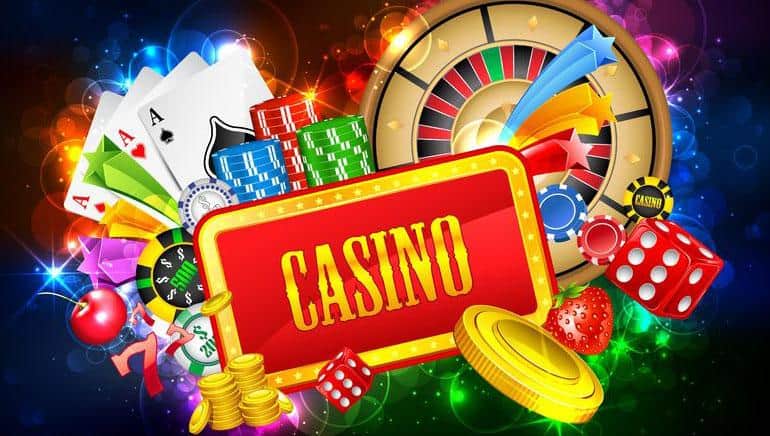Investigating the Principles of Gambling Casinos

Casino gaming has long been a subject of fascination and controversy, attracting millions of players globally. With a blend of chance, skill, and the excitement of uncertainty, casino games offer an exciting escape from everyday life. However, as entertainment becomes ever more accessible, it invites a deeper examination of the morality surrounding these games.
At the heart of the discussion lies the issue of whether casinos promote safe gambling or exploit vulnerable individuals. The appeal of potential winnings versus the reality of losses can create a challenging dynamic, and understanding this balance is crucial for both players and operators. As we delve into the morals of casino gaming, we will explore the duties of casinos, the effects on society, and the steps that can be taken to foster a better gaming environment.
The Impact of Casino Gaming on Society
Casino gaming has a considerable influence on societal dynamics, affecting not only the financial landscape but also social behaviors and community structures. The revenue generated from casinos can lead to employment opportunities and boost regional economies, as they provide various employment opportunities in multiple fields including food and beverage, leisure activities, and retail. However, while the economic advantages can be significant, communities often grapple with the possible negative impacts that arise from higher gambling activity.
Additionally, the presence of casinos can lead to an increase in gambling addiction, presenting significant challenges for players and families. VU88 The excitement of casino games can quickly evolve into a compulsive habit, affecting connections with others and leading to financial instability. Many individuals may find it difficult with the loss of control over their gambling behaviors, resulting in a need for assistance programs and interventions to address this growing issue. The social cost of gambling addiction can ripple through kinships and neighborhoods, creating an urgent need for responsible gaming initiatives.
In addition to the economic and social ramifications, casino gaming often showcases cultural attitudes towards uncertainty and leisure. It can encourage a sense of excitement and leisure, attracting tourists and boosting tourism. However, this allure may also conceal the broader implications of gambling as a method of entertainment, provoking ethical questions about its promotion and availability. As communities weigh the advantages and drawbacks of casino gaming, the need for responsible practices and regulation becomes increasingly critical in ensuring that the beneficial elements are maximized while minimizing the potential harms.
Moral Concerns in Betting Practices
The morality of gambling gaming often center around the potential for addiction and its consequences on people and households. Gambling can lead to significant financial distress, impacting not only the gamblers but also their families. As individuals become caught in the allure of winning, many lose sight of their budget, which can result in devastating outcomes such as bankruptcy. This raises ethical questions about the duty of casinos in promoting safe gaming habits and offering support for those who may be struggling with betting addiction.
Another major concern is the advertising of betting to at-risk groups. Casinos often target low-income individuals or communities with the offer of fast gains, which can perpetuate cycles of financial struggle and hopelessness. In this context, the ethics of marketing strategies used by casinos come under scrutiny, as they may take advantage of the need of people seeking an escape from economic troubles. This manipulation raises moral questions about the honesty of the betting industry and its obligation to safeguard its most at-risk customers.
Additionally, the impact of casino operations on the community as a entirety cannot be overlooked. While some argue that casinos create employment and boost local economies, others point to the community costs associated with dysfunctional gambling, increased crime rates, and a burden on public services. Balancing economic benefits with the potential for community issues presents a complex ethical dilemma for policymakers and casino operators alike. The challenge lies in finding a ethical approach that prioritizes the welfare of individuals and society while still permitting for the enjoyment of gambling activities.
Regulation Structure and Duties
The regulatory framework surrounding gambling operations is designed to ensure justice, trustworthiness, and participant security. Multiple government bodies and gaming commissions set and apply regulations that dictate how gaming operations operate, the standards for product design, and the processes for processing winnings. These regulations vary by jurisdiction but usually involve licensing requirements for businesses and stringent measures to stop fraud and fraud.
In addition to governing bodies, casino establishments bear significant duty in maintaining ethical standards within their venues. They must implement safe gaming practices that encourage participant protection and consciousness, including providing self-limitation options and offering information about the hazards related to gaming. Establishments are also responsible for educating staff to identify signs of problem gambling and understand the proper steps to support customers in trouble.
Moreover, clarity in casino operations is vital for building and preserving public faith. Operators should present clear data about the chances of activities, promotional opportunities, and any related hazards. By fostering an atmosphere of honesty and trust, operators can help reduce the potential adverse impact of gambling while enhancing the general betting experience for all gamblers.